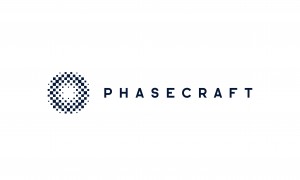A start-up launched by a group of Bristol and London academics who have been at the forefront of quantum computing research for the past 20 years has raised £13m to accelerate its pioneering work.
Phasecraft, which has bases in Bristol and London, designs advanced quantum algorithms for today’s computers. 
It is the only company in its sector to work with the three most advanced superconducting quantum hardware providers in the world, Google, IBM and Rigetti.
Founded in 2019 as a spin-out from London’s UCL and the University of Bristol, Phasecraft has already hired some of the world’s leading quantum scientists who are helping build quantum computing power capable of outperforming today’s computers for useful real-world applications such as developing new materials.
Its new investment takes the total raised by Phasecraft to £17.25m in venture funding, as well as a further £3.75m in grant funding from the likes of Innovate UK and the European Research Council,.
The money will be used to continue building the team of world-leading quantum scientists, researchers and engineers and to further establish Phasecraft as a global pioneer in quantum algorithms and cut the development of new supercomputing technologies from decades to years.
Its initial focus has been on applying algorithmic advances to discover the novel materials that will power the transition to clean energy.
Quantum computing promises to revolutionise the way humanity tackles its most complex problems. However, current computers of today aren’t capable of running the algorithms that exist to solve them.
Phasecraft’s founder professors Toby Cubitt (CTO and chief science officer and UCL Professor of Quantum Information), John Morton (director and Professor of Nanoelectronics & Nanophotonics, UCL) and Ashley Montanaro (CEO and Professor of Quantum Computation in the School of Mathematics at the University of Bristol), pictured, have spent the past two decades on a mission is to accelerate the practical application of quantum computing by redesigning quantum algorithms for today’s quantum computers.
Based on the best quantum algorithms known prior to Phasecraft’s founding, a useful calculation such as simulating and discovering a new battery material would require billions of operations on a quantum computer – today’s best-performing hardware can perform at most thousands.
While significant investment in hardware has boosted computing capacity, the algorithms needed to harness these advances have remained largely theoretical – to date, no algorithms have been run on a quantum computer to solve a problem of genuine practical interest.
Phasecraft has already developed a software pipeline which delivers an improvement of 1,000,000x or more in modelling real materials compared with the best previous quantum algorithms, bringing the number of operations required to model a material down to around 80,000 and within touching distance of existing hardware capability.
Prof Montanaro said: “For all the advances that have been made in quantum hardware, and for all quantum computing’s promise, such progress could end up being for nothing if we can’t build the applications needed to make the technology truly useful.
“With our record-breaking algorithms and groundbreaking techniques, we are pushing the boundaries of what is possible in this space.
“With support from such a renowned deep-tech visionary as Playground, we think practical quantum advantage is achievable in years, not decades.”
The £13m series A funding round was led by Silicon Valley deeptech VC Playground Global.
AlbionVC also joined the round, with participation from existing investors Episode1, Parkwalk Advisors, LCIF and UCL Technology Fund.
Playground Global general partner Peter Barrett said: “Phasecraft’s team of world-class quantum scientists and engineers bring an unmatched expertise and a fresh perspective to one of the biggest challenges facing our quantum future – bridging the gap between quantum hardware capacity and real-world applications.
“At Playground, we’ve always believed that unlocking quantum’s potential requires a very special, dedicated and experienced team and we believe Phasecraft is uniquely positioned to help deliver our quantum future.”
Phasecraft, whose chairman is recently appointed chair of the UK’s AI Foundational Model Taskforce entrepreneur and investor Ian Hogarth, has just hired computational chemistry and materials science expert Glenn Jones, former head of computational modelling at Johnson Matthey, to lead its materials work.






























